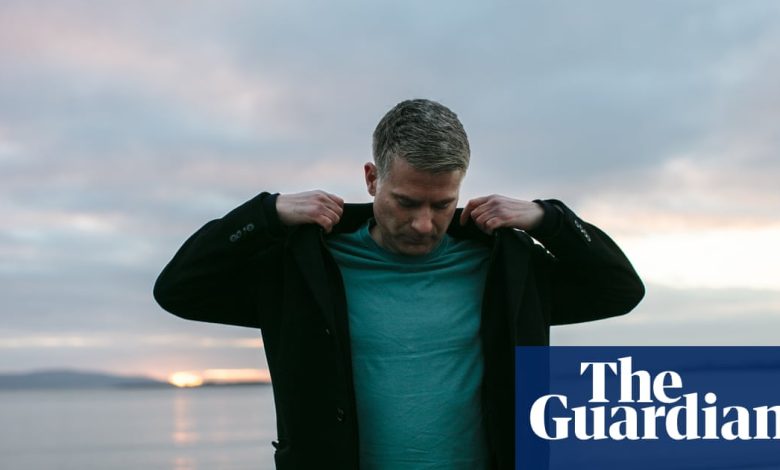Station to station: the European language DJs taking radio to new realms | Music

IIn the early 2000s, wading through the noise of mainstream radio, I stumbled upon RTÉ Raidió na Gaeltachta, the Irish outpost of Ireland’s national broadcaster – and a program that flipped the script on radio as I knew it. Submitted by Cian Ó Cíobháin from the Atlantic coast of Galway, quite a distance from my home in rural Northern Ireland, Taobh Tuathail (“The Other Side”) still feels like a portal to a distant realm.
Broadcast every weekday since May 1999, Ó Cíobháin expertly blends left-field music: he champions ambient and electronica pioneers such as Mexican composer Murkoff and the late Japanese musician Susumu Yokota, and highlights the sinuous instrumentalism of Irish artists including cellist Eimear Reidy and respected Limerick producer Naive Ted. Super Furry Animals frontman Gruff Rhys is one of many artists who have hailed the influence of An Taobh Tuathail, calling it “one of the most radical radio shows in the world”.
Unlike its flagship station Radio 1, RTÉ upheld the ban on playing songs in English on Raidió na Gaeltachta until 2005, with Ó Cíobháin navigating the restriction by presenting in Irish while playing mostly instrumental music spanning post-rock, electronica, jazz, techno and etc.
Although the ban has since been lifted, allowing the inclusion of Anglophone music over the past two decades, there is something about Irish-language music that continues to cast its own magic. Like countless other regular listeners only with cúpla focal (or “a few words”), straining my ear only deepened the appreciation.
“Listeners have messaged me to say the program is their only connection to the Irish language,” says Ó Cíobháin. “It’s a wonderful thing to hear: if it weren’t for the show, thousands of people around the world might never hear our beautiful, ancient language.”
“I’m aware that most listeners don’t speak the language, so I keep chatter to a minimum,” he adds. “I tell you what record I put out and what’s coming up. Non-native listeners have contacted me over the years to tell me how they find it quite comforting to tune in and hear me speak, even if they don’t understand everything I’m saying.’
As it celebrates a quarter of a century of quietly kicking against convention, An Taobh Tuathail is a reminder of how dedicated and passionate radio presenters can unlock new musical worlds – even if you don’t speak their language. Here are some other iconic programs from around the area Europe to find out.
Klaus Fiehe
In 1994, five years before An Taobh Tuathail hit the airwaves, Klaus Fiehe embarked on his own journey towards earning the title of ‘German John Peel’: his programme, 1 Live Fiehebroadcast by Cologne’s public radio station Westdeutscher Rundfunk (WDR), features a host who has always marched to the beat of his own drum.
Fieh’s career began in the early 1980s as a saxophonist for alternative rock icons Geier Sturzflug, and his three-hour weekly show, drawing from a personal collection of over 60,000 recordings, reveals his unparalleled curation, insatiable spirit and flair for storytelling in German pop culture. Peel’s parallel holds. And though he prefers to be known as “the man who spins the right stuff,” it is Fiehe’s mastery of the poetic ouch Deutsch which supports this inimitable show.
Rhys Mwin
The bass player in the politically outspoken Welsh punk rock band Anhrefn (or ‘Chaos’) in the 1980s and 1990s is now a tour guide and respected archaeologist, and his BBC radio show is also a real find. Largely presented in Welsh, Recordiau Rhys Mwyn (“Rhys Mwyn’s Records”) offers a sublime mix of lesser-heard music and guest reminiscences from the era when his old band toured Europe.
It’s not purely nostalgic, though. Alongside disco, punk, electronica and more, Mwyn’s dedication to presenting a host of contemporary artists, many of whom hail from Wales, seals its appeal. He occasionally switches to English to benefit English-speaking guests, making the return to melodious and crisp Welsh a wonderful payoff.
Grazina Bedron
Inspired by Lyl Radio in Lyon and Ida in Tallinn, Radio Kapital in Warsaw has stepped up to meet the demand in Poland.
A DJ who is shaping his identity is Grazina Bedronwhich debuts in August 2023. Every second Tuesday morning, she guides listeners through electronic genres from breakbeat to acid house, with themed episodes and a seamless mix of Polish and international sounds: “Immersion in underground flavors in the realm of electronic music, with a shared thread , which sparks conversations,” she says.



